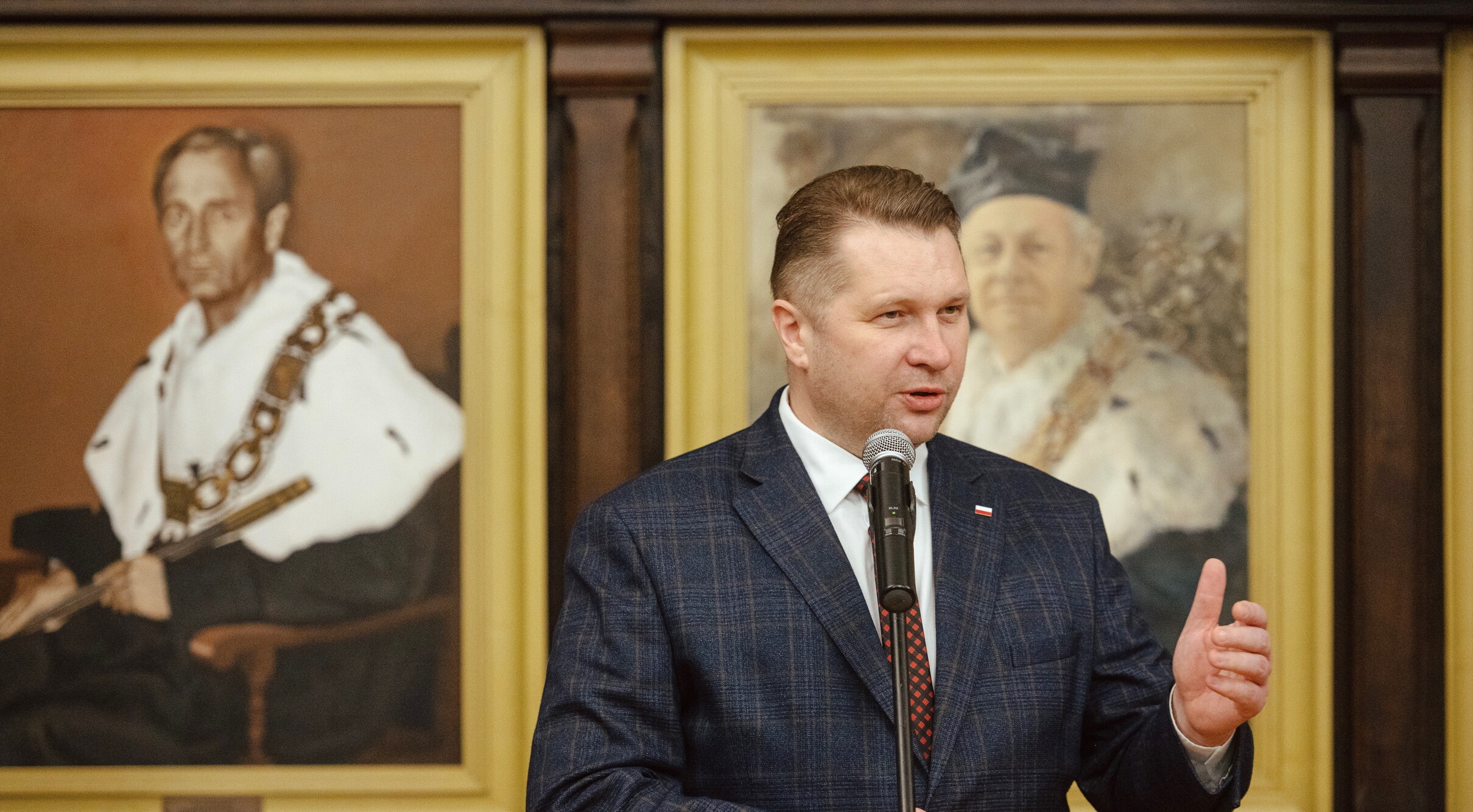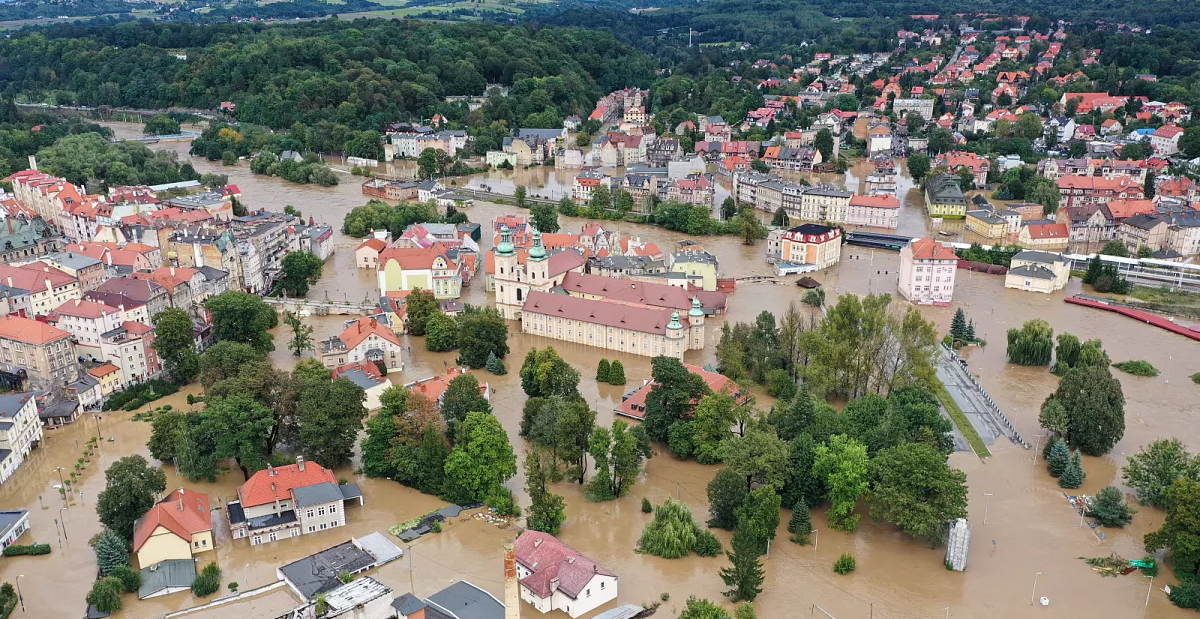Poland to reform academic grant system after funding of study on “transfemininity and sadomasochism”

Poland’s conservative education minister has pledged that the government will “completely reform” the system of awarding grants for academic research after being made aware of the “absurd decision” by a state body to finance a study on “transfemininity and sadomasochism”.
However, the funding body in question, the National Science Centre (NCN), has defended its decisions, which it notes are based on the independent assessments of research proposals by Polish and international experts.
Wstyd! Dziś @NCN_PL przyznał 750 000 złotych na pseudobadania „Trans kobiecość i sadomasochizm/BDSM. Związki i napięcia w polu produkcji płci” p. Janowi Szpilce z SWPS.
Na takie bzdury i pseudonaukę NCN wydaje pieniądze w dobie pauperyzacji naukowców… pic.twitter.com/6h2nAsY6Km
— Michał Sopiński (@michalsopinski) August 2, 2023
The controversy began when it was revealed that a project titled “Transfemininity and sadomasochism/BDSM: Relationships and tensions in the field of gender production” had been awarded almost 750,000 zloty (€169,000) by NCN, a state body that is Poland’s largest agency funding academic research.
The study – by a scholar at SWPS University in Warsaw – “aims to analyse the phenomenon of transfemale sadomasochism/BDSM in history and culture as a window into the insoluble tangle of sexuality and gender”, including “by analysing archival materials, such as historical pornographic literature”.
One of those who first shared details of the grant – Michał Sopiński, an academic associated with the Sovereign Poland (Suwerenna Polska) party, a member of the ruling national-conservative coalition – declared that funding such “nonsense and pseudoscience” by NCN is “shameful”.
„Harmful leftist entities will not receive any money from the education ministry,” says its head
He was responding to controversy over his ministry granting funds to a foundation associated with figures from the ruling party in order for it to buy a villa https://t.co/P6yxFWoVEo
— Notes from Poland 🇵🇱 (@notesfrompoland) January 24, 2023
“Why should Polish taxpayers sponsor deviancies instead of reliable research?” added Sopiński, who called on the education ministry and its head, Przemysław Czarnek, to investigate.
In response to controversy over the grant, Czarnek, an outspoken ultraconservative voice in the government, announced that he had written “an official and firm letter to NCN’s authorities” expressing “my objections to such absurd decisions”.
Czarnek noted that NCN is “independent of me and completely autonomous in deciding on grants, including from EU funds”. However, he added that “a bill to completely reform the grant system will, I trust, be the subject of the government’s work this autumn”.
Wystosowałem do władz NCN – dziś ode mnie niezależnych i całkowicie autonomicznie rozstrzygających konkursy na granty, także ze środków UE – oficjalne i stanowcze pismo z moim sprzeciwem wobec tak absurdalnych rozsyrzygnięć. Gotowy projekt całkowicie reformujący system grantowy… https://t.co/ApIPabL8HQ
— Przemysław Czarnek (@CzarnekP) August 3, 2023
NCN’s spokeswoman, Anna Korzekwa-Józefowicz, however, told the Polish Press Agency (PAP) that the NCN itself does not interfere with or influence the content of research projects submitted to it nor with the assessment of them, which is carried out by Polish and international academic experts.
The project on transfemininity and BDSM was funded as part of a grant contest organsied by NCN for young researchers who have obtained their doctorate in the last three years. It was one of 38 proposals funded out of 185 applications, notes the Gazeta Wyborcza daily.
The study’s author, Jan Wawrzyniec Szpilka, told the newspaper that he does not consider himself “as studying deviancies”. But, even if he did, “where does this idea come from that they cannot be the subject of intellectual reflection?”
“Academic research is not a form of moral judgment, and academics are not concerned with either affirming or condemning the subject of their research,” he explained.
Poland’s government will investigate over 1,000 academics who signed a letter defending a Holocaust scholar who said Poles did little to help Jews in WWII.
„We will analyse which universities [they are from] and we will react,” says the education minister https://t.co/SlfZuJAFiS
— Notes from Poland 🇵🇱 (@notesfrompoland) May 10, 2023
Mirosław Filiciak, the director of the institute at SWPS University in which Szpilka works, told Gazeta Wyborcza that he is “concerned about criticism from people who do not have substantive competence to evaluate Dr Szpilka’s project”.
“I hope we are not going back to the Stalinist era…[when] researchers were held hostage by populist propaganda, and the value of research projects was decided by politicians, not specialists,” added Filiciak.
Adrian Zandberg, one of the leaders of The Left (Lewica), Poland’s second-largest opposition group, also responded to Czarnek’s remarks by warning that “politicians cannot decide about the allocation of funds to specific research”.
Lewica zwiększy finansowanie badań naukowych. Dziś Polska przeznacza na naukę za mało środków. O przydzielaniu środków na konkretne badania NIE mogą decydować politycy. Bo nie mają do tego kompetencji.
A troglodytów, którym marzy się ręczne sterowanie nauką, czas już pożegnać. https://t.co/fu5Tm0cEGa
— Adrian Zandberg (@ZandbergRAZEM) August 3, 2023
After being appointed as education minister in 2019, Czarnek declared that he “stands for academic freedom”. However, he made clear that what he saw as threatening such freedom is “political correctness” and the “dictatorship of left-liberal views”.
He has since been accused by many academics of clamping down on the freedom of those who research areas that are contrary to the government’s agenda.
In May this year, Czarnek said that his ministry would investigate academics who signed a letter in defence of a Holocaust scholar criticised by the Polish government for saying that Poles did little to help Jews during the war.
In January, he warned that “harmful leftist entities will not receive any money” from his ministry. Last month, the ministry’s system for assessing academic publications was updated to raise the value of journals devoted to theology.
Articles published in academic journals devoted to theology are now valued as highly as those in leading international titles such as Nature and The Lancet, under changes to the system for evaluating research introduced by Poland’s education ministry https://t.co/TLb9g1trAw
— Notes from Poland 🇵🇱 (@notesfrompoland) July 26, 2023
Notes from Poland is run by a small editorial team and published by an independent, non-profit foundation that is funded through donations from our readers. We cannot do what we do without your support.
Main image credit: Bartosz Banka / Agencja Wyborcza.pl

Daniel Tilles is editor-in-chief of Notes from Poland. He has written on Polish affairs for a wide range of publications, including Foreign Policy, POLITICO Europe, EUobserver and Dziennik Gazeta Prawna.






![A stormy start to a much-needed debate on migration in Poland [Opinion]](https://polskieczasy.pl/wp-content/uploads/2024/10/49854107743_e5081700a8_oa-768x400.jpg)